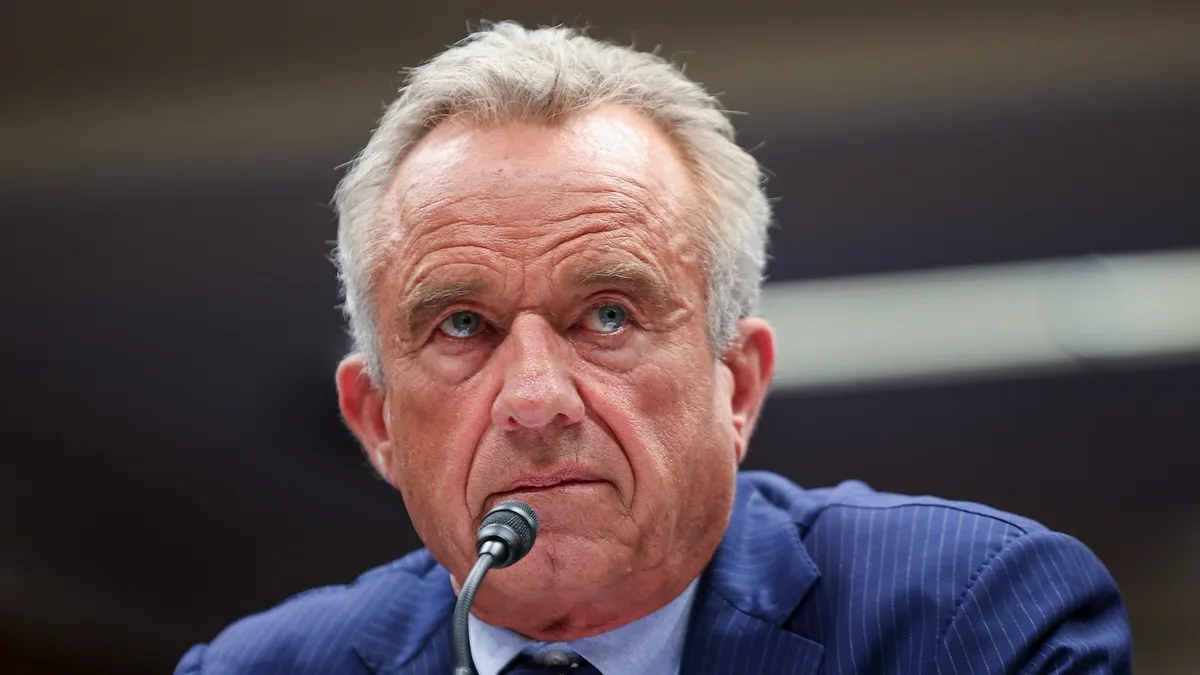
On Monday, Health and Human Services Secretary Robert F. Kennedy Jr. made headlines by announcing the removal of all 17 sitting members of the Centers for Disease Control and Prevention's (CDC) vaccine advisory committee, known as the Advisory Committee on Immunization Practices (ACIP). This significant move aims to replace the current members with a new group, as Kennedy emphasizes a commitment to restoring public trust in vaccine recommendations.
In his statement, Kennedy expressed the need to prioritize the restoration of public trust over any specific pro- or anti-vaccine agenda. He stated, "The public must know that unbiased science -- evaluated through a transparent process and insulated from conflicts of interest -- guides the recommendations of our health agencies." This declaration highlights the importance of transparency and trust in the scientific evaluation of vaccines.
The Biden administration had appointed all 17 sitting ACIP members, with a majority of those appointments made in 2024. Kennedy pointed out that this situation would have delayed the Trump administration's ability to appoint a majority of committee members until 2028. By restructuring the ACIP, Kennedy believes he can help restore public confidence in vaccine science, asserting that "a clean sweep is necessary to reestablish public confidence in vaccine science."
The newly appointed ACIP members are expected to prioritize public health and evidence-based medicine, moving away from what Kennedy described as a "rubber stamp" function for industry profit-taking agendas. In an op-ed published in The Wall Street Journal, he criticized the committee for alleged conflicts of interest and claimed that ACIP had never recommended against a vaccine, even those later withdrawn for safety reasons.
Kennedy's previous assurances to maintain the ACIP structure came under scrutiny following this announcement. In February, Republican Senator Bill Cassidy of Louisiana expressed concerns about Kennedy’s commitment to not alter ACIP. Following the recent changes, Cassidy took to social media to voice his apprehensions that the committee might be filled with individuals lacking expertise in vaccines.
Prominent health experts have expressed concern regarding Kennedy's decision. Dr. Paul Offit, a pediatrician specializing in infectious diseases, labeled the restructuring as "extremely dangerous," arguing that the ACIP's recommendations have historically led to better health outcomes for children. He emphasized that the committee has been instrumental in reducing childhood illness and mortality.
Furthermore, health advocacy organizations have voiced strong opposition to the decision. Dr. Bruce A. Scott, president of the American Medical Association, stated, "Today’s action to remove the 17 sitting members of ACIP undermines that trust and upends a transparent process that has saved countless lives." He highlighted the potential risks this move poses, especially amidst an ongoing measles outbreak and declining routine vaccination rates among children.
Former CDC Director Dr. Mandy Cohen shared her worries regarding the implications of Kennedy's actions for families trying to keep their loved ones safe. She remarked, "Secretary Kennedy’s unprecedented action spreads confusion and casts doubt on transparent public health processes that protect Americans." Dr. Richard Besser, president and CEO of the Robert Wood Johnson Foundation, also criticized Kennedy's decision as indicative of an anti-vaccine agenda.
This latest restructuring of the ACIP is part of a series of controversial moves by Kennedy, including his recent announcement to remove the COVID-19 vaccine from the CDC's immunization schedule for healthy children and pregnant women. The fallout from these decisions continues to provoke intense debate within the public health community.
As the situation unfolds, the focus remains on how these changes will affect public health policy and vaccine trust in the United States.